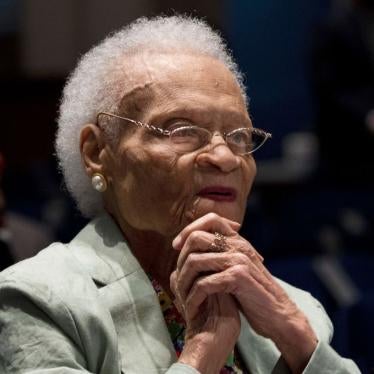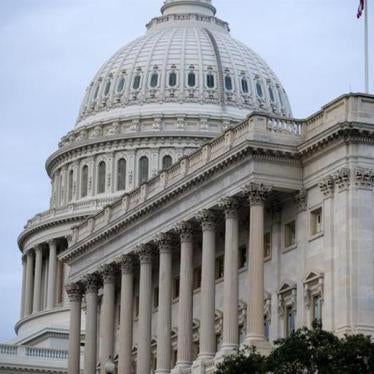May is especially heavy for Black people in the United States this year. We mark the first anniversary of George Floyd’s murder less than a week before we commemorate the centennial of the 1921 Race Massacre, which destroyed the thriving Black community of Greenwood in Tulsa, Oklahoma. What connects these events, 100 years apart, is the system of repression deployed to control the lives of Black people in the United States. To put it plainly, the system is rigged against us. But its transformation is within our reach.
The legacy of chattel slavery and Jim Crow laws persists today. Black communities have considerably less than their white counterparts when it comes to health care, education, housing, food, water, public safety, and practically every other measurement of success and well-being. These well-documented disparities persist because of choices made by policymakers (and some voters) – which means we have the power to change policies and disrupt this damaging reality. An achievable and critical step toward dismantling systemic racism involves embracing reparative justice and exploring reparations to make people and communities whole from the harm of past injustices and discrimination.
The Greenwood neighborhood of Tulsa was known during Oklahoma’s oil boom as Black Wall Street because of its prosperity. On May 31, 1921, a white mob, including men armed and deputized by city officials, looted, and burned the area, killing more than 300 Black people and stealing that community’s wealth. No Black people were compensated for their losses. No one was prosecuted for the violence. Laws and policies, including redlining and “urban renewal,” reinforced racial segregation in the city.
I had the privilege of hearing, firsthand, in the U.S. House of Representatives on the eve of the centennial, three survivors of that massacre, all over 100 years old, give their accounts of the moment when their lives changed forever and dignity, safety and prosperity were stripped from the Greenwood Community. It is direct evidence impossible to ignore.
The results of that massacre were long-lasting. Today Black Tulsans have more than double the unemployment rate of white residents and half the wealth, less access to education and healthy food. They face much higher rates of police violence, arrests, and searches – before George Floyd we said the name of Terence Crutcher, an unarmed Black man shot dead in 2016 by a Tulsa police officer—all seen in yet another viral video.
In Tulsa a growing movement is urging state and local officials to repair the harm done by the massacre, including providing reparations to survivors and their descendants, and to those feeling the impacts today. We need to build such a movement across the country, starting with urging the House of Representatives to pass H.R. 40, a bill that would establish an expert commission to study the enduring impact of slavery and devise a realistic reparations proposal. And if H.R. 40 fails to advance in the House, President Biden should stand ready to establish an H.R. 40-style commission through executive action.
H.R. 40 is necessary because the inequities we see in Tulsa are replicated across the United States. Around 21 percent of Black people live below the poverty line compared with 8 percent of whites – which affects housing, health care and hunger. Covid-19 is only the latest disease to kill Black Americans at higher rates than white Americans – just like HIV, cancer, asthma, stroke, heart disease and obesity. Black women are more likely to die in childbirth, regardless of income or education level, or to succumb to cervical cancer, a disease that is entirely treatable.
The past is the present until we have reparations. The systems built on and around slavery continue to damage lives across this country. Thousands of police forces are built upon slave patrols, charged with controlling Black bodies and too often delivering them to the prison industrial complex where “slave labor” is still permitted. Incarcerated people in the U.S. do not have a constitutional right to be free of forced labor, which is explicitly allowed by the 13th Amendment to the US Constitution.
Urban renewal rezones non-white neighborhoods (including Greenwood) for highways and industry and has left communities in food deserts with substandard water supplies, prone to flooding and overheating. Decades of redlining still hinders home ownership and shortchanges schools funded by local property taxes.
People in the United States often say we want everyone in this country to have a fair shot, so that anyone who works hard can get ahead. If so, we should demand that our government level the playing field and upend a system that is structured to inhibit rather than advance Black Americans. The first step, as H.R. 40 proposes, is to study the situation, understand our shared history and what undergirds the disparities that can be tied directly to slavery.
And then we need to identify options to make those communities whole. Reparative justice requires our government to make good on its promises of equity and justice for all, and to compensate victims of past ills that were officially sanctioned.
We have seen a measure of accountability for George Floyd’s murder delivered with a guilty verdict, yet we know it remains extremely rare for police officers to face significant punishment for killing unarmed Black people. In Tulsa, the white mob posed for photographs that were sent as prideful postcards – at least now the viral videos of racist violence are viewed with alarm and shame.
Justice for George Floyd, Terence Crutcher, the people of Greenwood and millions of Black Americans requires the United States to take conscious steps to dismantle systemic racism and start to repair centuries of harm. H.R. 40 is not a panacea, but it is one of the best shots we have, and it is a real beginning. In the powerful words of 1921 Tulsa Race Massacre survivor, “Mother” Lessie Benningfield Randall before the US. House Judiciary Committee, “I have waited so long for this country to do the right thing. I am tired, we are tired. Please, give us some justice.”
Nicole Austin-Hillery is executive director of the US Program at Human Rights Watch.









